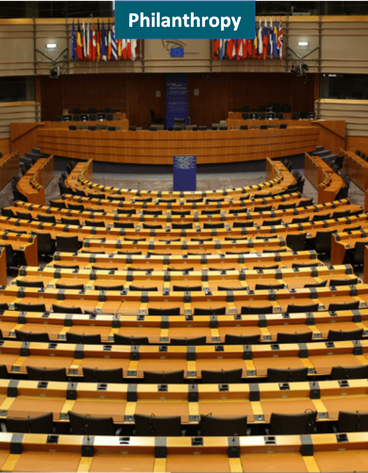Julius Meinl II was a successful businessman, who was also extraordinarily active on the political and social front. Under his management, his father’s simple food shop grew to become one of Austria’s leading companies. In 1910, Julius Meinl II was awarded the Knight’s Cross of the Franz Joseph Order by the emperor. For his advocacy of understanding and reconciliation, he was bestowed the title of Knight of the Legion of Honour by the President of France in 1928. From 1933, he was the Consul General of Denmark, and was subsequently always addressed as “Consul General Meinl” within the company.
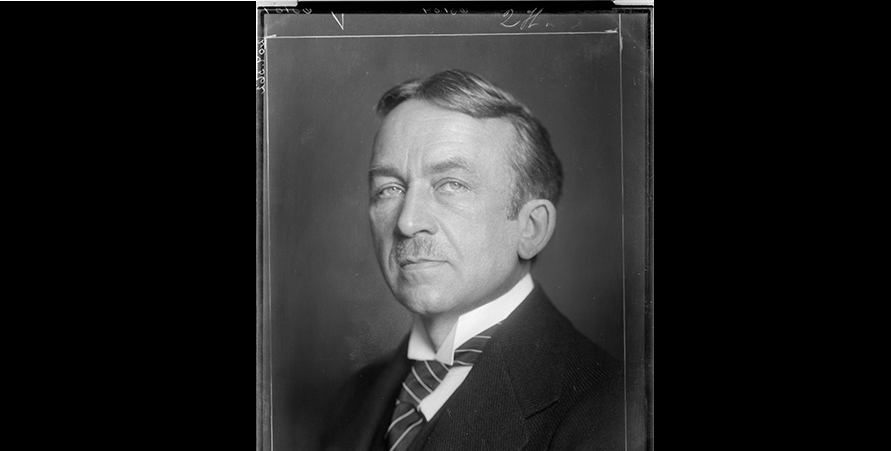
Julius II
* 18 January 1869 in Vienna; † 16 May 1944 in Alt-Prerau, Lower Austria
“Consul General Meinl”
Julius II’s Timeline
1869–1944
Personal Life
Julius Meinl II was born in Vienna on 18 January 1869, the son of Julius Meinl I and Therese Meinl (née Floderer). His mother died when he was just three years old.
After attending the lower grammar school in Brno and the Handelsakademie in Vienna, he joined the horse artillery as a one-year volunteer and quit the service with the rank of reserve lieutenant. There followed a brief stay in London as a volunteer in the wholesale sugar trade, where he made valuable business contacts and came up with new business ideas.
In 1892, Julius Meinl II married his first wife, Emmy Schörner, the daughter of a Prague hotelier. Their son, Julius Meinl III, was born in 1903.
After a short but serious illness, Julius’ first wife, Emmy (born Emma Amilie Schörner on 21 March 1871), who was much praised for her charitable spirit, died in 1922 at the Lahmann Sanatorium in Dresden. She held the honorary office of senior administrator of the Karolinen Children’s Hospital for over 20 years. Her burial in the family crypt at Dornbach Cemetery drew many people, among them a large contingent of representatives from the worlds of politics, big industry and banking.
In 1931, Julius Meinl II married again, this time to Michiko Tanaka (born 1909, died 1988), who was 40 years his junior.
Michiko Tanaka was a vivacious actress, singer and music professor. She came from a painter’s family in Tokyo and was educated in Hiroshima, Japan. Her uncle was the Japanese Ambassador to Austria and in 1929 she moved to Vienna to study.
In 1930, Michiko Tanaka made her stage debut in “Die Geisha”, an operetta by Sidney Jones. The production was a sensational success. She starred in 1935 in her first film, “Last Love”.
Michiko Tanaka played also in many other operas (including, “Dschainah, das Mädchen aus dem Tanzhaus”, which was written for her by Paul Abraham) and films.
Marrying Julius Meinl II saved Michiko Tanaka from having to return home to Japan. In 1930s Vienna, the Meinls were socially very active and announced numerous events, such as balls and dances, the flower carnival in the Prater Hauptallee, horse races in the Freudenau (The grand Meinl Prize 1935), the Japanese cherry blossom festival in the Sophiensälen, A Festival of the Nations in the Kursalon, the Meinl Ball at Hübners Parkhotel as well as many charitable events.
A constant stream of personalities from the worlds of society, business and politics convened at the Meinls’ villa in Dornbach and in the reception rooms of the Churhaus on Stephansplatz.
Julius Meinl II and Michiko Tanaka divorced in 1941 after the actor Viktor de Kowa asked her to marry him. Julius Meinl II was a witness at their marriage.
On 16 May 1944, Julius Meinl II died at his country estate in Alt-Perau.
Personal Life
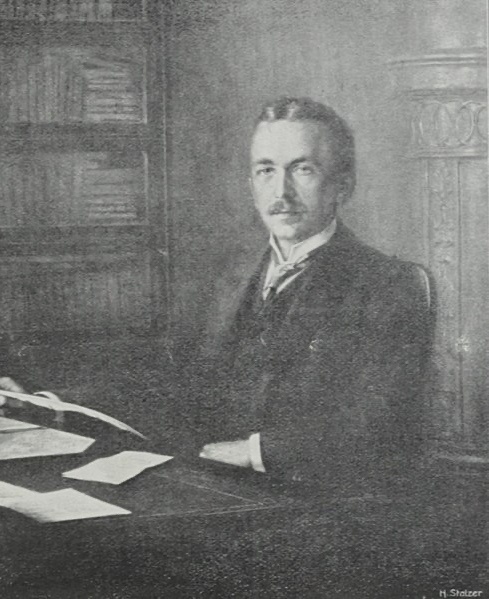
1892-1914
Building a Retail Empire
After his appointment as an authorised officer in 1892, Julius Meinl II exerted increasing influence on the development of his father’s company. Influenced by progressive, Anglo-Saxon economic theories, he advocated expanding the product range and opening up stores across the empire.
Following his father’s retirement, Julius Meinl II finally took over the reins of the company in 1913. At the time, it was already the largest food company of the imperial and royal monarchy, with a total of 1,200 employees, 115 stores and a further 185 so-called depots.
With flair and an appetite for risk, he initiated the further, successful expansion of the company.
Numerous production factories were also set up alongside the sales businesses. Julius Meinl II pursued the strategy of an integrated food company with a high degree of self-supply. Large central factories arose in Vienna even prior to the First World War. In addition to a coffee roast house and a tea packing facility, there were factories for chocolate, pralines, cocoa, biscuits, waffles, jams, which were later followed by production lines for fruit and vegetable conserves, vinegar, mustard, fruit juices, pasta products, distillates, margarine as well as oil and wine cellars.
Within the bounds of his company, Julius Meinl II also implemented sociopolitical ideas that were also to set the standard for other companies, such as the introduction of Sunday closing in 1907. The company voluntarily gave its employees many social benefits, such as recreational homes in the countryside and a lido in Vienna.
Julius Meinl II also realised early on that well trained employees were critically important. The company’s own training school for the standardised training of apprentices was founded as early as 1907.
Building a Retail Empire
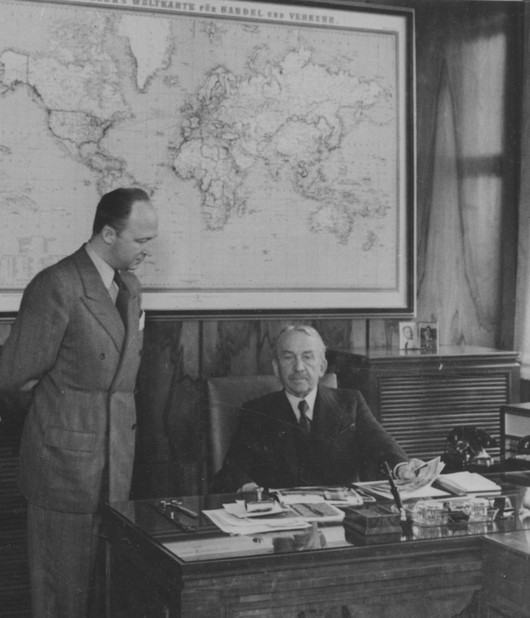
1914-1918
The First War
Julius Meinl II was a modern liberal who published essays against state interventions into economic life, but was also a supporter of the monarchy.
In the First World War, Julius Meinl II was a permanent adviser to the War Ministry on issues pertaining to nutrition.
In 1915, Meinl and the Viennese industrialist Max Friedmann jointly initiated the founding of the “Austrian Political Society” (Österreichische Politische Gesellschaft, or “ÖPG” for short), to which many members of the bourgeoisie and intelligentsia, industrial and business people, freelancers and university professors soon belonged. Apart from Meinl, it was primarily two individuals who were significantly involved in the ÖPG’s efforts for achieving a rapid peace agreement without expanding the territory of Austria-Hungary: the internationally respected constitutional lawyer Heinrich Lammasch and the jurist and Member of the Imperial Council Josef Redlich.
From 1916, Julius Meinl II devoted himself to the question of how the war could be brought to an end. He said that the peace initiative ought to emanate from Vienna. He also presented this plan to Emperor Karl I on several occasions. In 1917, the emperor wanted to appoint a Lammasch-Meinl-Redlich ministry to develop a federal constitution for the monarchy and end the war. US President Wilson also supported the efforts and dispatched a trusted member of his staff to assist. However, the peace campaign failed due to the rejectionist posture of the Central Powers.
Julius Meinl II, whose dense network of food shops extended across the entire Austro-Hungarian monarchy, probably realised much earlier than most of the others the monarchy’s rapidly worsening situation regarding the supply of raw materials and food, such that his concerns for his company also played a role in his efforts.
Julius Meinl II also worked outside the ÖPG as a diplomat: within the scope of the so-called “Meinl Group“, a loose association of pacifist politicians, jurists and business leaders, he played a decisive role in 1917/18 on the preparation of a peace treaty with the Triple Entente. Ultimately, however, these campaigns, too, were unsuccessful.
Julius Meinl II also seems to have been significantly involved in the financing of the pacifist periodical Der Friede, which appeared in Vienna from January 1918.
Julius Meinl II also pursued pacifist activities in Switzerland: he set up an aid organisation for Austrian children, and in 1918 negotiated with Britons and Americans over deliveries of food to Austria.
The First War
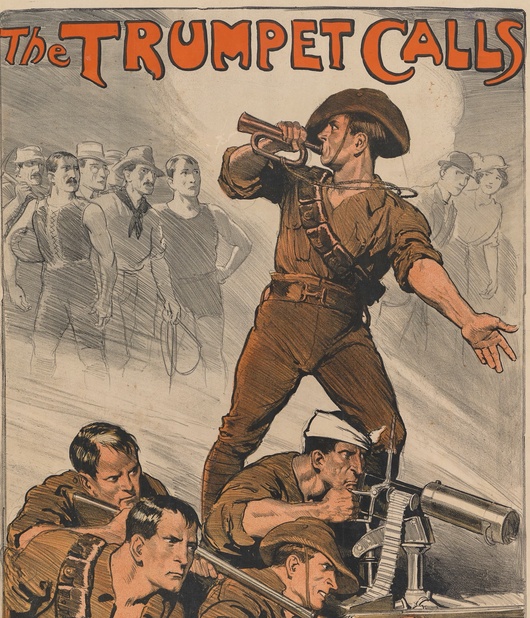
1918-1933
Rebuilding
In 1931, Julius Meinl II married Michiko Tanaka (pictured right), who was 40 years his junior. See Julius’ Personal Life section for more information on his marriage to Michiko.
Aftermath of the War
In the Austria of the 1920s, which had shrunk considerably in size after the First World War, the social tensions that had been the source of unrest at the end of the monarchy continued unabated. The two large political movements increasingly clashed, sometimes violently. In this heated mood, Julius Meinl II always stood for peace and political reconciliation. His persistent advocacy in favour of understanding was also in the interest of peaceful economic development, which was naturally also intended to benefit his company. With this in mind, Julius Meinl II lobbied politicians and influential personalities.
Based on the idea of reconciliation, he founded in 1929 the Österreichischer Klub (the Austrian Club), where personalities from the worlds of society, diplomacy, politics, business and art could meet and exchange ideas. Julius Meinl II always pointed to Austria’s significant role in Central Europe as mediator between the nations and as the spiritual heart of Europe.
Entrepreneurial Life
In the 1920s and 1930s, the company developed into a modern pioneering operation under the management of Julius Meinl II. He understood the need for constant rationalisation in order to secure the price competitiveness of the Meinl stores.
In the areas of Marketing and Corporate Design/Corporate Identity, Julius Meinl II was far ahead of his time. In 1924, he had a new logo designed by Joseph Binder, a well-known Viennese graphic designer: a dark-skinned child’s head wearing a tall, red fez and holding a coffee cup, on a yellow background. This eye-catching Moor’s head immediately achieved a signalling effect and characterised the Austrian street scene for more than 80 years.
After he had founded Spar- und Kreditverein der Freunde und Angestellten der Julius Meinl AG (Savings and Credit Association of the Employees and Friends of Julius Meinl AG) as a co-operative in 1923, Meinl was allowed to manage savings deposits.
From 1933, Julius Meinl II acted only as president of the company’s Board of Directors. At the same time, his son from his first marriage, Julius Meinl III, was included in the operational management of the company.
Rebuilding
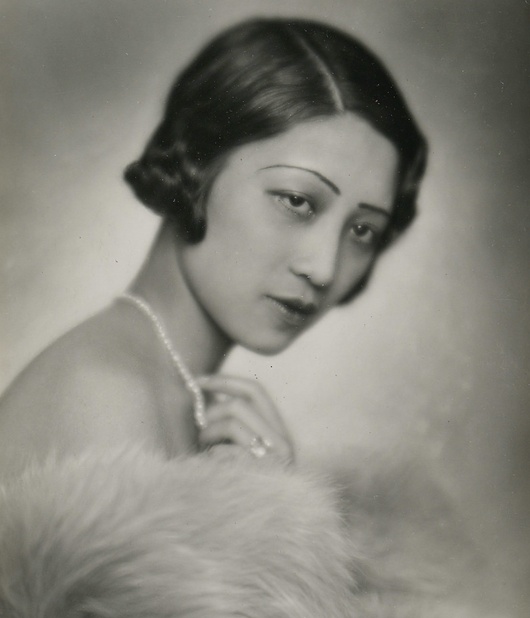
1933-1939
The Rise in Anti-Semitism
In 1937, Julius Meinl AG was the biggest food processing and retailing company in Central Europe, operating in eight countries with a total of 572 stores and 600 depots. The territory in which Meinl was represented stretched from Dubrovnik/Yugoslavia in the south to Vilna/Poland in the north and from Feldkirch/Vorarlberg in the west to Galatia/Romania in the east.
The market-leading position of Julius Meinl led to a rebellion among local merchants as early as the beginning of the 1930s. Envy of the successful company ran high. At the same time, the National Socialists began hassling Jewish businesspeople. In particular, this affected the Managing Director of Julius Meinl AG, Kurt Schechner, and led to the passing of a law (Lex Meinl) in 1933 that prohibited the establishment of further stores.
The company that Julius Meinl III headed up until his death in 1944 was a power factor, also in the eyes of the Nazi regime. The ban on opening new stores was repealed by the new rulers after Austria’s so-called ‘Anschluss‘ to the German Reich in March 1938. However, the National Socialists immediately exerted their influence over company policy and the filling of important posts. Jewish managers were gradually pushed out. Thus Schechner was compulsorily replaced by Friedrich Schüngel as Managing Director. Schüngel had led the Meinl stores in Berlin since 1935 and was, according to the Gauakt, an “exemplary National Socialist“.
Julius Meinl III, who was known for being an opponent of National Socialism and married to a Jew, was also forced out of management. Together with his wife and children, he left Austria in 1938. The following year, he emigrated to England.
The Rise in Anti-Semitism
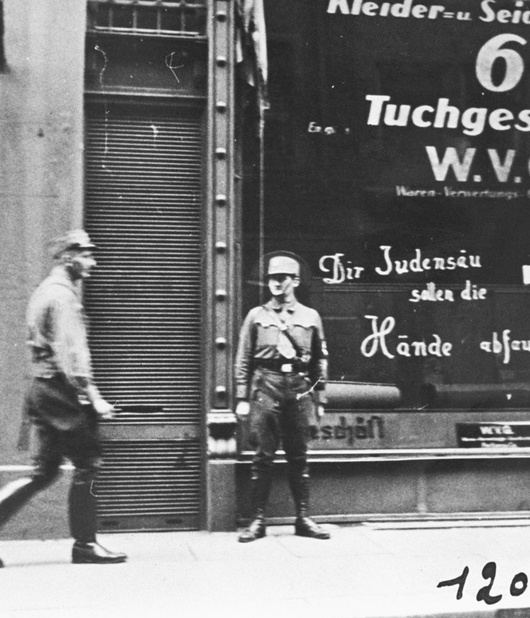
1939-1944
The Second War
The National Socialist regime regarded Julius Meinl II with suspicion. Since he was a well-known anglophile and anti-nationalist, they checked on him continually. More to the point, the regime ensured that whilst Julius Meinl II remained president of the company’s Board of Directors, his role was largely titular. Records show that Friedrich Schüngel had sole authority to give orders and that he was entitled to do without recourse to the Julius Meinl II. The company had essentially been seized by the Nazis.
The introduction of the war economy in December 1939 resulted in the rationing of food and with it the re-organisation of all aspects of food production and inventory management. Sales of what had been the main products of Meinl – coffee, tea and cocoa – were banned. The Meinl stores now served as food distribution points for supplying the population. Externally produced staples that Meinl stores had not carried up until then, such as meat, vegetables, potatoes or eggs, were added to the product range. The sales that Meinl lost through the loss of its specialty business in coffee, tea and cocoa were offset by new products and sales channels.
The task of the Meinl Group within the war economy was to produce and purchase goods to ensure the supply of the population. Sales were guaranteed, as retailers were obligated to purchase set quotas of products from certain wholesalers or the consumer cooperative. Many small traders were thus obliged to procure goods from Meinl. In addition, from 1940, Meinl was also obliged to supply the Wehrmacht.
When the Nazi elite had something to celebrate, they often ordered a Meinl buffet. In the occupied countries there were Meinl stores where only ethnic Germans were allowed to shop, as well as shops exclusively for members of the Wehrmacht.
The Meinl businesses operated at full capacity during the war, with the exception of those that produced oil and margarine, which suffered from a lack of raw ingredients.
This even enabled the company to increase its turnover during the war. The opening of new stores also continued, although some of them were destroyed by war hostilities. In 1944, the company owned almost a hundred production sites and around 700 stores.
The Second War
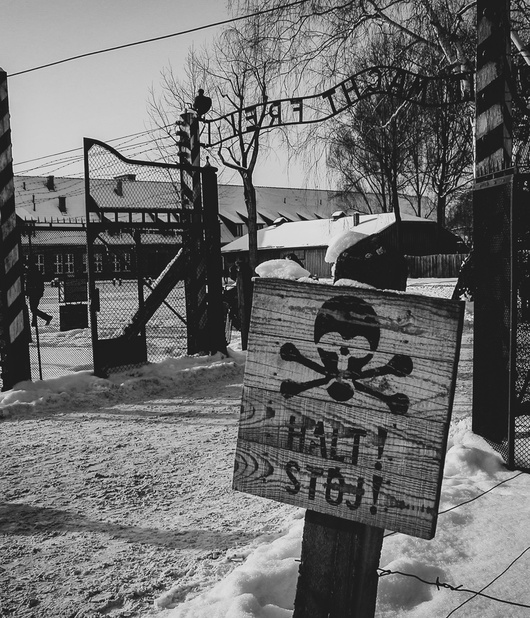
1944
Succession
Julius Meinl II was not allowed by the Nazi regime to appoint his son as testamentary heir in his will. Julius Meinl III was considered to be an enemy of the state, who was married to a Jew and had fled to England. Instead, the regime suggested that Meinl appoint a National Socialist youth welfare foundation as universal heir of his estate.
To avoid compulsory expropriation, Julius Meinl II, who was 75 years old at the time, adopted Friedrich Hiksch in 1942, two years before his death. Hiksch was an old school friend of Julius Meinl III and had long worked for the company, including as head of advertising. He had most recently stationed in Romania. Now re-named Fritz Meinl, Hiksch was appointed testamentary heir whereby upon the death of his adoptive father he was to hold 75% of the estate as “pre-inheritance” for the two grandchildren of Julius Meinl II. If the grandchildren were to return to Austria after the war and reside within its territory for at least 10 years, Fritz Meinl would have to cede the corresponding portion of the inheritance. However, he could retain 25% of the estate for himself.
Upon the death of Julius Meinl II in 1944, Fritz Meinl accepted the inheritance and became president of the company’s Board of Directors.
Julius Meinl II was considered to be an extraordinary Anglophile. He always spent part of the year in England, had influential English friends, an English secretary, and appeared more like an Englishman in terms of living habits, taste, temperament and vision. Immediately after abdicating as King Edward VIII, the Duke of Windsor travelled to Austria in the autumn of 1936 and also visited Julius Meinl II at the company’s headquarters.
Succession
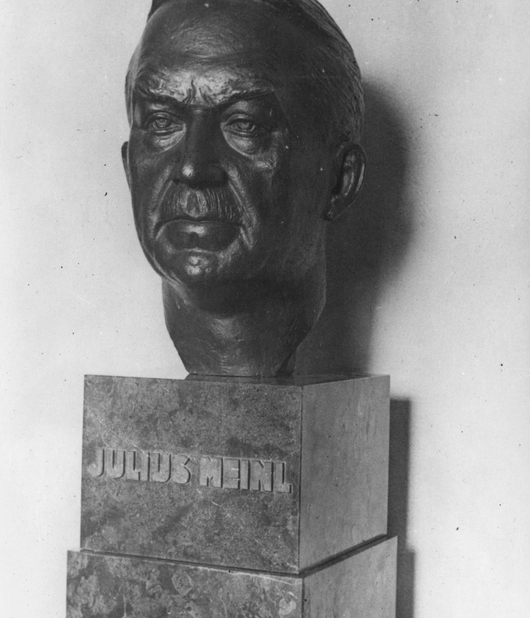
Retail
Over 5 generations, the Meinl family used its skill, patience and determination to build the Julius Meinl grocery retail business into one of the largest and most successful in Europe.
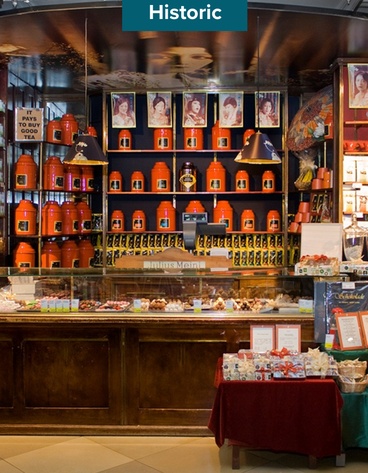
Austrian Political Society (OPG)
In 1915, Julius Meinl II founded the Austrian Political Society (ÖPG) as a platform for discussion and the exchange of plans for bringing peace by bringing to an end the First World War.
